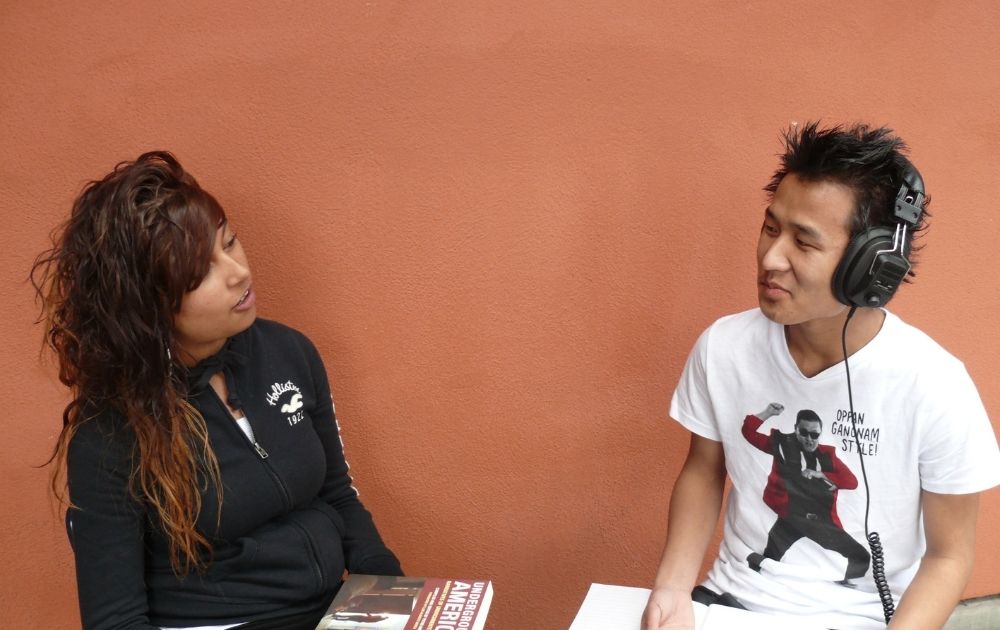Six by ten feet. That’s the average size of the cell in which tens of thousands of people incarcerated in the United States linger for weeks, months, and even decades in solitary confinement. With little stimulation and no meaningful human contact, these individuals struggle to preserve their identity, mental health, and even their lives.
To learn more, read Six By Ten: Stories from Solitary, an oral history book in the Voice of Witness series.
In thirteen intimate narratives, Six by Ten explores the mental, physical, and spiritual impacts of America’s widespread embrace of solitary confinement. Through stories from those subjected to solitary confinement, family members on the outside, and corrections officers, Six by Ten examines the darkest hidden corners of America’s mass incarceration culture and illustrates how solitary confinement inflicts lasting consequences on families and communities far beyond prison walls.
We hope that these stories propel the conversation around solitary confinement, and inspire you as a reader to take action to end its use in our prisons. The following are 10 actions you can take to end solitary confinement:
1. Become a friend to someone in solitary.
People in solitary may not have anyone on the outside to write or call, and correspondence with someone on the outside can be a significant source of comfort. To find a pen pal, connect with Solitary Watch’s “Lifelines” program.
2. Invite people who have spent time in solitary to speak in your community.
If you are part of a book club, library meetup, volunteer group, or any other community forum, invite someone who has been in solitary confinement to come speak and share their experiences and thoughts with other community members.
3. Make demands of local elected officials and candidates.
In most states, the county jail is run by the locally elected sheriff. Attend town halls or write your sheriff a letter demanding that solitary be banned in your local jail. During election time, show up to events to ask candidates for sheriff to state whether they would abolish solitary confinement if elected. Vote accordingly.
4. Give your money or time to local prisoners’ rights and reentry organizations.
These groups are on the front lines of protecting peoples’ rights while in solitary and assisting them when they return to the community.
5. Organize to pass statewide reforms.
State legislatures across the country have passed laws restricting solitary confinement in local jails and state prisons. Contact your local prisoner rights’ organization or ACLU to help support existing campaigns to enact new state laws addressing solitary confinement. Join efforts to improve access to quality mental health care funding, both in the broader community and in prisons and jails.
6. Ask your governor where they stand on solitary.
The heads of most state prison systems are appointed by the state’s governor, so what the governor believes about solitary confinement and who they appoint to that position is critical. Call in to radio shows or attend town halls to ask your governor about solitary confinement. Make sure your governor is committed to appointing a corrections director tasked with implementing reforms to solitary confinement.
7. Volunteer in a prison.
Most prisons have opportunities for volunteers to teach classes inside prisons. There you will have the opportunity to work with and talk to people returning to the general prison population after having spent time in solitary. More broadly, every effort that penetrates prison walls and creates more contact between the outside world and those who are incarcerated increases accountability and transparency.
8. Support efforts to hire formerly incarcerated people.
Regardless of your vocation, making an active effort to hire people who were formerly incarcerated not only helps to repair some of the damage done to people in prison and their families, it also helps create a bridge between those who have spent time in prison and those who have not.
9. Support investigative journalism.
Journalists who have the time and resources to shine light inside prisons will continue to be invaluable in the movement to end solitary confinement. Donate to projects like Solitary Watch and subscribe or donate to other media outlets that cover prison rights and criminal justice issues.
10. Share our new book, Six By Ten: Stories from Solitary.
Send a copy to a friend. Snap a photo of an excerpt or quote that most impacted you and share it on social media. Amplify the voices of people whose lives have been forever altered by solitary confinement. If you’re an educator, download the corresponding lesson plans.





